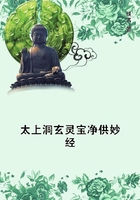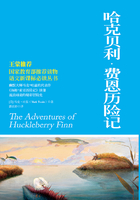"I engaged forty-five copyists and in twenty-two months had completed two hundred volumes, which included some Greek and Latin as well as many Oriental writings."The reading and judging of manuscripts are now known as the science of diplomatics. To determine their antiquity or genuineness requires the nicest distinctions and care, irrespective of alleged dates (whether exhibited by Roman numbers or the Arabic one which we continue to employ, and which first made their appearance near the commencement of the twelfth century). The inks as already mentioned and used on them, as we shall see, serve fully as much in estimating authenticity or genuineness as does combined together,--the style of the writing, the miniatures, vignettes and arabesques (if any), the colors, covers, materials, ornamentation and the character of their contents.
With the re-establishment of learning in the fifteenth century and the creation of alleged stable governments, who may perhaps have realized the necessity for an ink of enduring good commercial and record qualities, so-called "gall" inks were chosen as best possessing them, and were made and employed with varying results even more than the ancient "Indian"inks.
Mediaeval practices in relation to ink and other writing materials as well as the monastic libraries of which England, France, Germany and Italy possessed many during the thirteenth, fourteenth, and more particularly the fifteenth centuries, were governed by established rules.
The libraries of such institutions were placed by the abbot under the sole charge of the "armarian," an officer who was made responsible for the preservation of the volumes under his care; be was expected frequently to examine them, lest damp or insects should injure them; he was to cover them with wooden covers to preserve them and carefully to mend and restore any damage which time or accident might cause; he was to make a note of any book borrowed from the library, with the name of the borrower;but this last rule applied only to the less valuable portion of it, as the "great and precious books"could only be lent by the permission of the abbot himself. It was also the duty of the armarian to have all the books in his charge marked with their correct titles, and to keep a perfect list of the whole.
Some of these catalogues are still in existence and are curious and interesting in their exemplification of the kinds of ink employed and as indicative of the state of literature in the Middle Ages, besides presenting the names of many authors whose works have never reached us. It was also the duty of the armarian, under the orders of his superior, to provide the transcribers of manuscripts with the writings which they were to copy, as well as all the materials necessary for their labors, to make bargains as to payment, and to superintend the work during their progress.
These transcribers, Mr. Maitland in his "Dark Ages" tells us, were monks and their clerks, some of whom were so skilled that they could perform all the different branches. They were exhorted by the rules of their order to learn writing, and to persevere in the work of copying manuscripts as being one most acceptable to God; those who could not write were recommended to bind books. This was in line with the behest of the famous monk Alciun who lived in the eighth century and who entreated all to employ themselves in copying books, saying:
"It is a most meritorious work, more useful to the health than working in the fields, which profits only a man's body, while the labour of a copyist profits his soul."When black ink was used in liturgical writings, the title page and heads of chapters were written in red ink; whence comes the term rubric. Green, purple, blue and yellow inks were sometimes used for words, but chiefly for ornamenting capital letters.
A large room was in most monasteries set apart for such labors and here the general transcribers pursued their avocations; in addition, small rooms or cells, known also as scriptoria, occupied by such monks as were considered, from their piety and learning, to be entitled to the indulgence, and used by them for their private devotions, as well as for the purpose of transcribing works for the use of the church or library.
The scriptoria were frequently enriched by donations and bequests from those who knew the value of the works carried on in them, and large estates were often devoted to their support.
"Meanwhile along the cloister's painted side, The monks--each bending low upon his book With head on hand reclined--their studies plied;Forbid to parley, or in front to look, Lengthways their regulated seats they took:
The strutting prior gazed with pompous mien, And wakeful tongue, prepared with prompt rebuke, If monk asleep in sheltering hood was seen;He wary often peeped beneath that russet screen.
"Hard by, against the window's adverse light, Where desks were wont in length of row to stand, The gowned artificers inclined to write;The pen of silver glistened in the hand Some of their fingers rhyming Latin scanned;Some textile gold from halls unwinding drew, And on strained velvet stately portraits planned;Here arms, there faces shown in embryo view, At last to glittering life the total figures grew."--FOSBROOKE.
The public scribes of those days were employed mostly by secular individuals, although subject to be called upon at any moment by the fathers of the church. They worked in their homes except when any valuable work was to be copied, then in that of their employer, who boarded and lodged them during the time of their engagement.
To differentiate the character of the class of pigments or materials then employed in making colored inks, from those of the more ancient times is difficult;because we not only find many of like character but of larger variety. These were used more for purposes of illuminating and embellishing than for regular writing.
Even when printing had been invented spaces were frequently left, both in the block books and in the earliest movable type, for the illumination by hand, of initial letters so as to deceive purchasers into the belief that the printed type which was patterned closely after the forms of letters employed in MSS. writings was the real thing. The learned soon discovered such frauds and thereafter these practices were abandoned.















